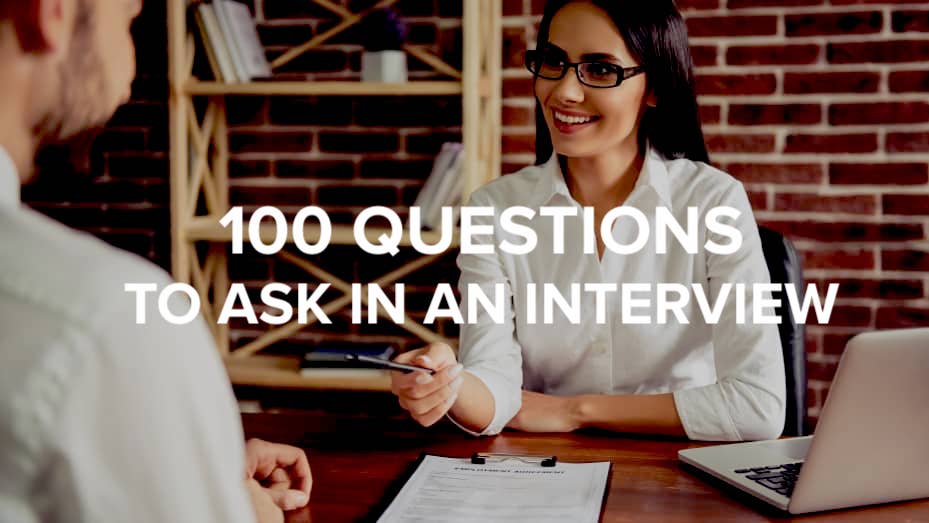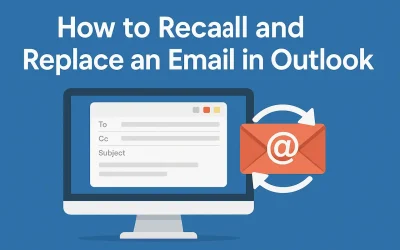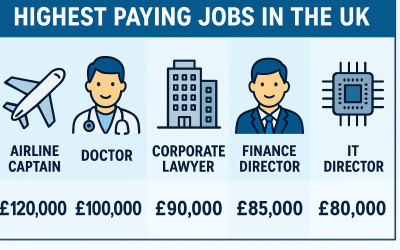As your job interview nears its end, you’ll likely have the opportunity to take the floor and ask questions of your own. The interviewer expects you to be prepared and engaged, so it’s essential to have some thoughtful inquiries ready for the hiring manager. Failing to ask any questions may convey a lack of preparation or interest, so make sure to have some well-prepared questions in mind.
What is your English level?
Find out your A1 A2 B1 B2 C1 C2 level of English with our online test and receive your English certificate.
To demonstrate your preparedness and genuine interest in the job, it’s crucial to have a set of questions ready for the end of the interview.
When your interview has been progressing smoothly, and you’ve confidently addressed the recruiter’s inquiries, you’ll likely be asked, “Do you have any questions for me?” Always respond with a yes to increase your chances of securing the position.
Having a well-thought-out list of questions for the interviewer showcases your enthusiasm, engagement, and interest in the role, which are all qualities the employer seeks in a candidate. Moreover, it provides a final opportunity to emphasize your relevant skills and experience.
Prepare a set of four or five questions to ask, so even if some are addressed earlier in the conversation, you have alternatives ready to go.
Avoid focusing too much on what the organization can do for you, such as questions about salary and holiday allowances. These can be addressed after receiving a job offer. Additionally, refrain from asking yes-or-no questions, as this information is usually available on the company’s website.
While it’s acceptable to seek clarification on certain points, avoid asking about topics that have already been covered to avoid giving the impression that you haven’t been attentive during the interview. If you need ideas for good questions to ask, here are some examples to consider…
Top tips for asking an employer questions in a job interview
Before we delve into the list of questions, here are some important guidelines to bear in mind:
- Avoid saying you have no questions. Regardless of your stress levels or confidence in the conversation, responding with “Nope, I’m good” is the worst approach.
- Stay flexible. While preparing a few questions beforehand is recommended, don’t hesitate to deviate from the list if your queries have already been addressed or if the discussion naturally leads to new questions. Authenticity is essential, so avoid sounding like you’re just reading from an internet list.
- Ask specific questions. Demonstrate your investment and attentiveness throughout the interview process by tailoring your questions to the specific role and company. This reinforces your background knowledge and experience relevant to the position.
- Don’t reserve questions solely for the end. Treat the interview as a conversation and feel free to ask questions at appropriate points during the discussion.
- Ask questions that genuinely matter to you. It’s not just about impressing the interviewer; use this opportunity to inquire about topics that genuinely pique your curiosity and will impact your decision about the job. For instance, if a project mentioned in the job description excites you but hasn’t been discussed, or if you’re uncertain about the daily responsibilities, don’t hesitate to seek clarification.
Best questions to ask about the job
Ensure you have a clear understanding of the day-to-day tasks for the current and future scope of the job. This will enable you to make an informed decision if a job offer comes your way and help you avoid “Shift Shock” or a negative work environment.
Consider asking the following questions during the interview:
- What does a typical day or week look like in this role? (Or a similar alternative question.)
- What are the most immediate projects that need to be addressed?
- Can you provide examples of projects I’d be working on?
- What specific skills and experiences are you seeking in an ideal candidate?
- What attributes does someone need to possess to be highly successful in this position?
- Are there any particular skills or expertise that the current team is lacking and looking to complement with a new hire?
- What are the major challenges that someone in this position would face?
- Can you provide insights into the budget I would be working with?
- Is this a newly created role or will I be replacing an employee who is leaving?
- How does this position contribute to the overall goals of the company?
- Do you anticipate any significant changes to the main responsibilities of this position within the next six months to a year?
Are you C1 Advanced English?
Get your C1 Advanced English certificate now!
✓ Add your certificate to your resume
⭐ ⭐ ⭐ ⭐ ⭐
Top questions to ask about training and professional development
Consider viewing each new opportunity not merely as a job but as a progressive move towards achieving career success. Evaluate if this position aligns with your career goals and aspirations.
You may ask the following questions during the interview:
- How does your onboarding process typically work for new employees?
- What learning and professional development programs are accessible to employees?
- Are there chances to take on stretch assignments that allow me to acquire and apply new skills?
- Are there opportunities for career advancement within the company?
- Would I have the opportunity to represent the company at industry conferences or events?
- Can you share examples of the career progression of successful employees who were previously in this position?
Common questions to ask about how your success will be evaluated
Gaining insight into how your prospective manager evaluates success is crucial to grasp their management approach and the priorities of the company or team.
You may inquire with the following questions during the interview:
- What are the key objectives you expect someone to achieve in the initial 30, 60, and 90 days on the job?
- Could you outline the performance expectations for this role over the first 12 months?
- Can you provide details about the performance review process in this organization? How frequently would formal reviews take place?
- What specific metrics or goals will be used to assess my performance?
Smart questions to ask about the interviewer
Posing these questions demonstrates your genuine interest in the interviewer as an individual, fostering a strong connection with a potential future colleague.
Consider asking the following:
- How long have you been a part of this company?
- Has your role evolved since you joined?
- What was your previous professional experience before this position?
- What motivated you to join this particular company?
- Could you share your favorite aspect of working here?
- Are there any challenges you encounter occasionally or regularly in your role?
- What aspect of your job are you most enthusiastic about in the coming months?
- Are there any upcoming projects or initiatives that you find particularly interesting?
Best questions to ask about the company
Why not take the opportunity to learn more about the potential workplace? A job is not just about the daily tasks; finding an employer with shared values and heading in a direction you align with can lead to greater job satisfaction.
You may consider asking the following questions during the interview:
- I’ve read about the company’s founding, but could you provide more details about [another significant company development]?
- What direction do you envision this company taking in the next few years?
- Can you share information about any new products or growth plans in the pipeline?
- What are the current primary goals the company is focused on, and how does this team contribute to achieving those objectives?
- What aspect of the company’s future excites you the most?
- What are the most crucial values upheld by the company? (Please ensure this information is not easily accessible through a quick online search.)
- How does the company ensure it maintains and upholds its core values?
What is your English level?
Find out your A1 A2 B1 B2 C1 C2 level of English with our online test and receive your English certificate.
Smart questions to ask about the team
The colleagues you interact with on a daily basis can significantly impact your work experience. To determine if it’s the right team for you, ask some insightful questions.
Consider inquiring about the following:
- Can you provide me with information about the team I’ll be collaborating with?
- With whom will I have the closest working relationship?
- Who will be my direct supervisor?
- Could you share some details about the individuals reporting directly to me?
- What are the team’s main strengths and challenges?
- Do you anticipate hiring more personnel for this department in the next six months?
- Which other departments closely collaborate with this team, and how does that collaboration function?
Creative questions to ask about the culture
Ensure you find a workplace where the culture aligns with your preferences and values. To do this, ask about aspects that matter to you regarding company culture.
Consider posing the following questions:
- How would you characterize the work environment here – is it predominantly collaborative or more independent in nature?
- How does the team foster and maintain strong bonds among its members?
- Could you share details about the most recent company event that the team participated in together?
- What’s your favorite office tradition that the team follows?
- What are the typical lunch arrangements for you and the team?
- Do employees from the company or team socialize outside of working hours?
- Are there joint events organized with other companies or departments?
- What sets apart the experience of working here compared to your previous workplaces?
- How has the company evolved since you became a part of it?
- How has the organization managed challenges related to remote work?
- How does the company ensure that remote and hybrid employees receive the same opportunities and treatment as in-office employees?
Best questions to ask about next steps
Before concluding the interview, ensure that the interviewer has all the necessary information and that you have a clear understanding of what to expect moving forward. (However, avoid making this the very first question when it’s your turn to ask!)
You may ask:
- What are the next stages in the interview process?
- Is there any additional information I can offer that would be beneficial?
- Do you have any final questions I can address for you?
Questions to avoid asking in your job interview
While it’s essential to gather all the necessary information before accepting a job offer, certain questions are more appropriate to ask after receiving an offer, during your employment, or not at all.
Avoid asking:
- What does [Company] do exactly? (Or any question that indicates you haven’t conducted basic research about the company.)
- When does my paid time off (PTO) become effective?
- Can I have every Monday off during football season?
- How much is the monthly childcare allowance?
- How well do employees handle humor or jokes? (This may imply you’re unsure about the workplace culture.)
- When do I start? (Or any question that may come across as presumptuous or overly confident.)
This opportunity to ask questions is invaluable, and it should not be squandered. It serves as a chance to further demonstrate your suitability for the position and to determine if the job aligns with your preferences. While you don’t need to ask all 100+ questions provided, select the ones that are most relevant to your interests and the specific role. Write them down in advance, either on paper or on your phone, and review them to ensure they are fresh in your mind.
Remember to be considerate of the interviewer’s time. If the scheduled conversation is nearing its end, prioritize two or three questions that hold the most significance for you. You will have additional opportunities to ask questions once you receive a job offer.
FAQ: Questions to Ask in an Interview
1. Why are questions important in an interview?
Asking thoughtful questions during an interview serves multiple purposes. It showcases your genuine interest in the company and role, allows you to gather crucial information to assess job fit, and helps establish a rapport with the interviewer. Additionally, it demonstrates your preparedness and commitment to making an informed decision about potential employment.
2. How many questions should I ask during an interview?
The number of questions to ask in an interview may vary, but it’s generally recommended to have around 3 to 5 well-prepared questions. Quality over quantity is key; focus on relevant and insightful inquiries that align with your career goals and the company’s culture.
3. Should I ask all the questions listed in the article?
No, it’s not necessary to ask all the questions mentioned in the article. Choose questions that are most pertinent to your specific interests, the role, and the company. Tailor your questions to demonstrate your enthusiasm for the position and showcase your understanding of the company’s values and objectives.
4. Can I ask personal questions during the interview?
While it’s essential to inquire about the company, role, and work environment, avoid asking overly personal questions during the interview. Stick to inquiries related to the job, company culture, and career growth opportunities.
5. When is the best time to ask questions during an interview?
Asking questions should be part of a natural flow during the interview. Typically, there’s a designated time for candidates to ask their questions near the end of the conversation. However, if relevant opportunities arise during the interview, feel free to pose your inquiries at appropriate moments.
6. What if my interviewer already covered some of the information in their presentation?
If the interviewer has already addressed certain points during their presentation, acknowledge their explanation and then seek further clarification or additional insights related to those topics. Show your attentiveness and interest by building on the information they provided.
7. How should I prepare for asking questions in an interview?
Before the interview, thoroughly research the company, position, and industry to develop insightful and relevant questions. Write down your chosen questions on paper or your phone to ensure they are fresh in your mind during the interview. Remember to be considerate of the interviewer’s time and prioritize your most important questions if time is limited.
8. Can I ask questions after receiving a job offer?
Yes, once you receive a job offer, you will have the opportunity to ask more questions. At this stage, you can seek clarification on specific aspects of the offer, such as compensation, benefits, work arrangements, and any other details that will help you make an informed decision.
What is your English level?
Find out your A1 A2 B1 B2 C1 C2 level of English with our online test and receive your English certificate.
I am Nilay, an experienced English Language Assessment Director at the International English Test, where I have been working full-time since February 2020. I specialize in helping people worldwide validate their English proficiency through comprehensive assessments and certifications.
Before joining the International English Test, I worked as a self-employed English Language Assessment Consultant from January 2015 to December 2019. During this time, I assisted companies and individuals in improving their language skills, helping them achieve their academic and professional goals.
I hold a degree in Engineering and have also studied at Shafston International College in Australia. My educational background has equipped me with the tools to make a meaningful impact in the field of English language learning. Additionally, I enjoy sharing my expertise through articles that explore effective teaching methods and language assessment strategies, contributing to the International English Test and the broader assessment community.





